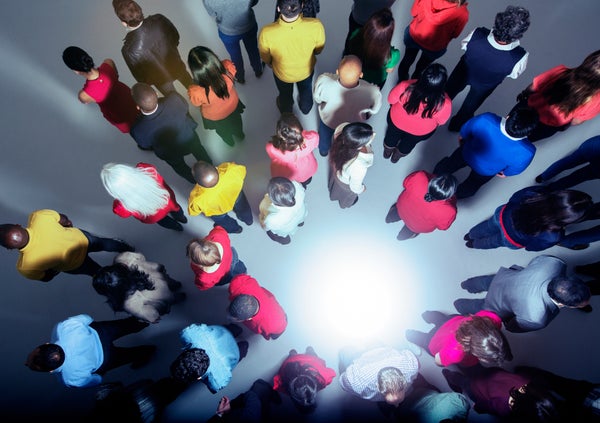This article was published in Scientific American’s former blog network and reflects the views of the author, not necessarily those of Scientific American
Do Americans hate science? They certainly seem to hate it more than they used to, as they rage against experts in every field. This is more than a traditional American distaste for eggheads and intellectuals. Americans, increasingly, are acting (and voting) on myths and misinformation about science, and placing themselves at significant risk. In Texas, for example, “personal-belief exemptions” among parents refusing to vaccinate their children increased from 2,314 in the 2003-2004 school year to 44,716 in 2015-2016. Although these parents were, they say, galvanized by the election of Donald Trump—America's most prominent vaccine skeptic—this reflexive dismissal of science long predates the 2016 election, even if it has intensified in the last few years.
Of course, Americans don’t really hate science: they rely on it every day in ways they don’t even notice. From tens of thousands of safe and effective over-the-counter drugs to the directions on a car’s GPS system, Americans trust the work of experts on a daily basis. Rather, it is more accurate to say that the American public distrusts scientists, rather than science itself. Scientists, however, should be consoled by the fact that they are disdained not for their work, but for being part of an undifferentiated mass of “experts” whom a fair number of Americans now view as, at best, a suspect political class, and, at worst, as an enemy.
In one sense, this attack on the defenders of established knowledge was inevitable. It is not only fueled by an obvious culprit—the internet—but also by the unintended side effects of otherwise positive social changes. Universal education and increased social mobility, among other changes, have thrown America’s experts and citizens into direct contact after nearly two centuries in which they lived segregated lives and rarely interacted with each other. And yet the result has not been a greater respect for knowledge, but the growth of an irrational conviction among Americans that everyone is as smart as everyone else. To understand this, and to think about solutions, requires a deeper look at causes. Both the professional community and the public it serves bear some responsibility for our parlous condition.
On supporting science journalism
If you're enjoying this article, consider supporting our award-winning journalism by subscribing. By purchasing a subscription you are helping to ensure the future of impactful stories about the discoveries and ideas shaping our world today.
For its part, the American public is in the grip of a sullen, almost paranoid, narcissism about science and experts. This is not a function of education; the anti-vaccine movement, for example, is actually concentrated among parents with more education than their poorer counterparts. Indeed, ignorance has become hip, with some Americans now wearing their rejection of expert advice as a badge of cultural sophistication. (Consider the number of otherwise intelligent people who advocate consuming raw milk, for example, against the advice of a horrified medical community.)
Instead, the public rejection of science is an extension of our politics, which in turn have become an expression of our constant outrage about everything that offends our deepest beliefs about ourselves. As social scientist David Dunning has put it: “Some of our most stubborn misbeliefs arise not from primitive childlike intuitions or careless category errors, but from the very values and philosophies that define who we are as individuals.” When those misbeliefs are challenged, laypeople take it not as correction but as a direct attack on their identity.
The expert community, however, must shoulder some of the blame for the collapse of the relationship between science and the public. Experts often trespass across from empirical knowledge to normative demands—I am not without sin as an expert myself in this regard—and thus validate the suspicions of laypeople that the real goal of expert advice is to force compliance with expert policy preferences.
The debate over climate change is a good example of this problem. Is the earth’s climate changing? Most experts believe it is, and they believe they know why. Whether their models, extrapolated out for decades and centuries, are accurate is a legitimate area for scientific debate. What experts cannot answer, however, is what to do about climate change. It might well be that Boston will be underwater in fifty years, but it might well also be that voters— who have the right to be wrong— will choose to shift that problem to later generations rather than to risk jobs (or comfort) now.
Letting Boston slide into the harbor is not my preferred outcome. But experts cannot compel civic engagement, and they must accept that their advice, which might seem obvious and right to them, will not always be taken in a democracy that may not value the same things they do. The job of mediating those values and policies lies with elected officials, not with scientists or other experts. The knowers cannot—and in a constitutional republic, should not—be the deciders.
At the same time, experts cannot withdraw from a public arena increasingly controlled by opportunistic demagogues who seek to discredit empiricism and rationality. Instead, the expert community must help to lead laypeople, who find the modern world intimidating and even frightening, back along the road to a better day when the citizens of the United States valued scientists and other professionals as essential parts of the American story. Experts must continue, as citizens, to advocate for those things they believe to be in the public interest, but the most important role they can play is defend a stark but empathetic insistence on science and reason as the foundation for public policy.
